This is the kind of post that I would normally put on RealWorldHomesteading.com, but I decided to crosspost it here.
2023 has turned out to be one of the hottest and driest here in Eastern Iowa. In what we refer to as The Enchanted Forest, everything looks healthy, but I can tell by what’s going on in my garden that this year has not been normal. Admittedly, I was late getting my garden in this year, and things are more slow and steady as a result.
Before the latest heat wave that took us into the 90s, this past week, I moved a 10-foot-tall cabinet in my garage from one corner to the other corner diagonal to it so we could install an extension to our garage entry door stoop. Demolition of the cabinet took me a couple of days, and I had to label each piece and its position so it could be reassembled later.
 Once the cabinet and its frame were out of there, with the help of our friend Mark, we built the extension. It really is all about having the right materials and tools; we were able to do that portion of the renovation in about two hours. The results so far have been amazing.
Once the cabinet and its frame were out of there, with the help of our friend Mark, we built the extension. It really is all about having the right materials and tools; we were able to do that portion of the renovation in about two hours. The results so far have been amazing.
I think we are going to lie low for the next few days. The temperatures are set to go even higher, and there will be humidity to boot. The next project will be to tile the kitchen table in Mexican Talavera tile. We already did that to our counters, and really love the feel of the tile. It was altogether fun to do.
In the spring, we stripped off the Formica on our kitchen countertops and replaced them with Mexican Talavera tile. Admittedly, I had bought a huge box of Mexican Talavera Tile from Direct From Mexico via Amazon during the winter months and I can tell you, my spouse and I were chomping at the bit to get started on it!
Initially, I had wanted to do wood countertops, using some beautiful old 12″ wide boards that were 15 feet long and came out of an old hardware store built in the 1860s. The patina on those boards is absolutely beautiful; there is no doubt about that! Unfortunately, however, after doing a whole lot of research, I found that wood countertops are not easy to execute, nor are they easy to keep clean, sanitary, or in shape because of their constant exposure to the rigors of kitchen use. It would have been a whole lot of work, so when I saw the Talavera tile on offer, I knew that was the way to go. Needless to say, my spouse enthusiastically agreed.
We had stripped off Formica before in our two bathrooms so we could tile those as well. That process was much easier because the glue on those counters was not nearly as heavy.  For the kitchen counter, we needed not only a hammer and a chisel but also a heat gun to soften up the glue beneath the Formica. The kitchen counters took a couple of days to strip off entirely.
For the kitchen counter, we needed not only a hammer and a chisel but also a heat gun to soften up the glue beneath the Formica. The kitchen counters took a couple of days to strip off entirely.
After the Formica was gone, the counter was sanded, and we added a sealant to the top we spent DAYS belaboring potential tile arrangements. After we decided on a pattern, we applied the thin-set mortar and carefully arranged the tiles according to the reference numbers we taped on each one.
The first section was the small two-foot-wide cabinet on the right side of the stove and against the wall. It was a way to test the strength of the countertop under the weight of the tile, grout, and the bullnose tile that served as the outer edge of the counters. We were pleasantly surprised at how well it looked. There was no buckling, and it had an energy to it that almost begged to be fondled!
The next two phases were a little trickier. One was a length of counter space that ran from the refrigerator to one corner along the west wall. It was wider than the short piece by the stove and the length along the north wall to and around the sink. We pretty much had it mapped out as to what tiles were going to go where. The blue bullnose tile that serves as the edging around the countertop was a given, as was the single row of assorted tiles that served as a backsplash. How to finish the back edge we hadn’t figured out yet.
 In the end, we went with a rounded 2″ x 4″ tile and put them in place. It still didn’t look quite right until we found some color-matched caulk and ran it along the upper edge of the backsplash and edging.
In the end, we went with a rounded 2″ x 4″ tile and put them in place. It still didn’t look quite right until we found some color-matched caulk and ran it along the upper edge of the backsplash and edging.
It looked so gorgeous; it was almost excruciating to have to wait to start using the kitchen as a kitchen again! We had been relying on takeout sushi, burgers, and whatever we could put in the microwave or air fryer for our meals. Thankfully, we have a second sink in the basement that serves as the apothecary, which we can wash dishes in.
Once it was completely set and dry, we were able to move the regular fixtures in the kitchen back in place. We now had so much more work space because we really just did not want to clutter up our new counter! Anytime there is a spill or even a water spot, there is an intense desire to wipe it down immediately so you can see all that beauty. Admittedly, the solid tiles, especially the cobalt blue, show spots the most. The patterned tiles are less likely to show them.
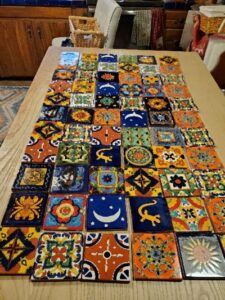 The Table / Kitchen Island
The Table / Kitchen Island
About 10 years ago, I purchased a counter-height table for our kitchen for around $100. Even then, that was definitely a steal. It was made of blonde wood and had a pull-out leaf on either side. I did it for a few reasons. When making bread or prepping meals, nothing beats having a surface that is the same height as a kitchen counter rather than having to lean over a conventional height kitchen table. Trust me, the latter can be a real killer for your back. One of the other reasons is that we have had a series of dogs, some of which are rambunxious enough to have climbed on past tables that were of traditional height. I really was not fond of having to order our canine family members to get off the table! The counter height table, along with no chairs around it, seemed to have solved that issue.
Above is an initial layout pattern and by no means final. We still have to attach a sheet of concrete backer board to protect it from moisture and to better adhere the tile. That will add a bit of weight, but it is steel-reinforced underneath, so I think it can take it.
We don’t have AC or central air in our house, so we are just waiting on the current heat wave to break so we can start up working on it again.
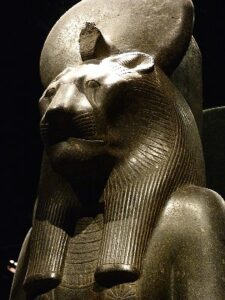
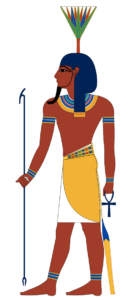 Depending on which day you celebrate the Helical Rising of Sirius – it is what we Kemetics note as Wep Ronpet, or our New Year. Admittedly, I have waited a couple of days to write this, not because I needed to recover from a wild bout of celebrations but to contemplate what I want this new year to be.
Depending on which day you celebrate the Helical Rising of Sirius – it is what we Kemetics note as Wep Ronpet, or our New Year. Admittedly, I have waited a couple of days to write this, not because I needed to recover from a wild bout of celebrations but to contemplate what I want this new year to be.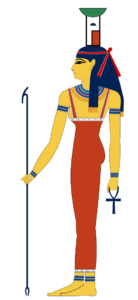 We have now come to the last of the Epigomenal Days of Wep Ronpet and the celebration of the birth of the youngest child born of Nut and Geb – Nebt-Het or Nephthys . Her Name literally means ‘Lady of the House’, and She, like Her sister, Aset, is a Lady of Great Magic. Since about the Fifth Dynasty, Nebt-Het was called the Helpful Lady or Most Excellent Goddess. In some cosmologies, Nebtj-Het was paired with Set, while in others She was the wife of Yinepu (Anpu) or Anubis. Nebt-Het and Aset are perhaps best known for proceeding over funerary rite, such as when Wasir (Osiris) died and became the Lord of the Field of Reeds.. Because of this association, this Goddess is known to be of particular comfort to the deceased and those who survive them.
We have now come to the last of the Epigomenal Days of Wep Ronpet and the celebration of the birth of the youngest child born of Nut and Geb – Nebt-Het or Nephthys . Her Name literally means ‘Lady of the House’, and She, like Her sister, Aset, is a Lady of Great Magic. Since about the Fifth Dynasty, Nebt-Het was called the Helpful Lady or Most Excellent Goddess. In some cosmologies, Nebtj-Het was paired with Set, while in others She was the wife of Yinepu (Anpu) or Anubis. Nebt-Het and Aset are perhaps best known for proceeding over funerary rite, such as when Wasir (Osiris) died and became the Lord of the Field of Reeds.. Because of this association, this Goddess is known to be of particular comfort to the deceased and those who survive them.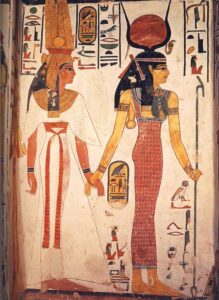 Today marks the day that we celebrate the birth of the Goddess Aset (Isis, Ast, or Iset). Of all the Egyptian gods and goddesses, Aset, the Mistress of Magic, or She of the 10,000 Names, is probably the best known throughout the world. Although Her worship began in ancient Egypt, it spread throughout the Greek and Roman world and traveled throughout the empire. Aspects of Aset’s worship can be seen even in Christianity.
Today marks the day that we celebrate the birth of the Goddess Aset (Isis, Ast, or Iset). Of all the Egyptian gods and goddesses, Aset, the Mistress of Magic, or She of the 10,000 Names, is probably the best known throughout the world. Although Her worship began in ancient Egypt, it spread throughout the Greek and Roman world and traveled throughout the empire. Aspects of Aset’s worship can be seen even in Christianity.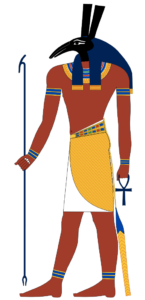 We have now entered the third Epigomenal Day of the Kemetic calendar leading up to Wep Ronpet, or Egyptian New Year. Also known as Seth or Sutekh, Set is the god of Storms and of the Red Lands or desert regions of Egypt.
We have now entered the third Epigomenal Day of the Kemetic calendar leading up to Wep Ronpet, or Egyptian New Year. Also known as Seth or Sutekh, Set is the god of Storms and of the Red Lands or desert regions of Egypt.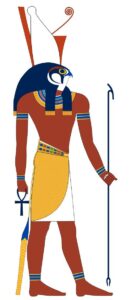 Today marks the Second Epagomenal Day in the Kemetic Calendar, the birthday of the Egyptian deity known as Heru-Wer,, Horus the Elder or Horus the Great. (Not to be confused with Heru Sa Aset, otherwise known as Horus the son of Isis, or Horus the younger.)
Today marks the Second Epagomenal Day in the Kemetic Calendar, the birthday of the Egyptian deity known as Heru-Wer,, Horus the Elder or Horus the Great. (Not to be confused with Heru Sa Aset, otherwise known as Horus the son of Isis, or Horus the younger.)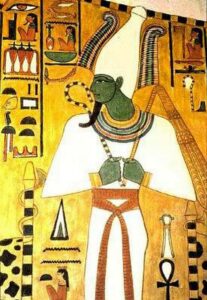 We are now entering Wep Ronpet (Kemetic New Year) celebrations with the first of the epagomenal days. Today marks the first day leading up to what we Kemetics call Wep Ronpet or the Ancient Egyptian New Year. This is the day, according to the Egyptian faith, that is the birthday of the first of the Netjeru, Wasir, or Osiris.
We are now entering Wep Ronpet (Kemetic New Year) celebrations with the first of the epagomenal days. Today marks the first day leading up to what we Kemetics call Wep Ronpet or the Ancient Egyptian New Year. This is the day, according to the Egyptian faith, that is the birthday of the first of the Netjeru, Wasir, or Osiris. Once the cabinet and its frame were out of there, with the help of our friend Mark, we built the extension. It really is all about having the right materials and tools; we were able to do that portion of the renovation in about two hours. The results so far have been amazing.
Once the cabinet and its frame were out of there, with the help of our friend Mark, we built the extension. It really is all about having the right materials and tools; we were able to do that portion of the renovation in about two hours. The results so far have been amazing. For the kitchen counter, we needed not only a hammer and a chisel but also a heat gun to soften up the glue beneath the Formica. The kitchen counters took a couple of days to strip off entirely.
For the kitchen counter, we needed not only a hammer and a chisel but also a heat gun to soften up the glue beneath the Formica. The kitchen counters took a couple of days to strip off entirely. In the end, we went with a rounded 2″ x 4″ tile and put them in place. It still didn’t look quite right until we found some color-matched caulk and ran it along the upper edge of the backsplash and edging.
In the end, we went with a rounded 2″ x 4″ tile and put them in place. It still didn’t look quite right until we found some color-matched caulk and ran it along the upper edge of the backsplash and edging. The Table / Kitchen Island
The Table / Kitchen Island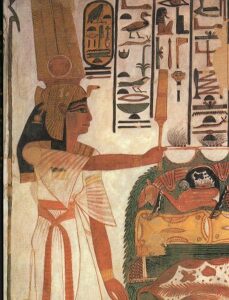 Thanks to the help of my dear friend and web developer, Shayne at CatchThis! I have moved my blog from WordPress dot com to a new place on the interwebs that lets me avoid the dreaded block editor that they have inflicted on everyone. If you don’t want to do the same, you can, of course, go back to the Classic editor that we all know and love for just $321 per year.
Thanks to the help of my dear friend and web developer, Shayne at CatchThis! I have moved my blog from WordPress dot com to a new place on the interwebs that lets me avoid the dreaded block editor that they have inflicted on everyone. If you don’t want to do the same, you can, of course, go back to the Classic editor that we all know and love for just $321 per year.